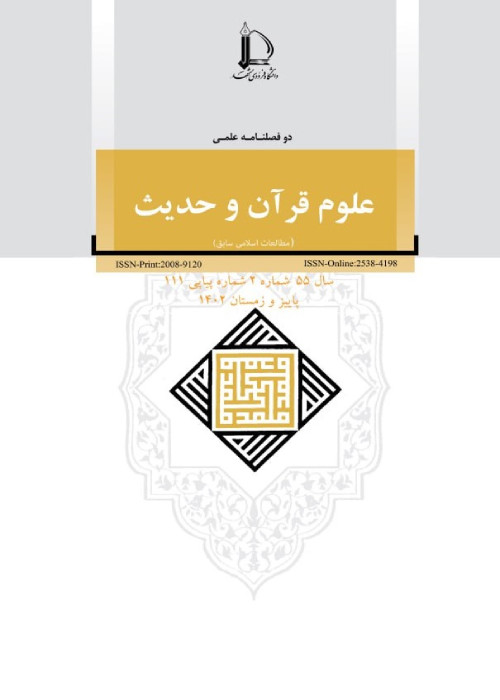The Theory of Independent Semantics of the Quranic Phrases: Critical Study
In the customary conversations, discovering the speaker's intention depends on the comprehension of all evidence. In the same way, to achieve the correct understanding of the Quranic sentences and verses, all the attached indications as well as the verses context should be considered. However, regarding each of the Quranic phrases, some have claimed that besides the contextual meaning, there is a trans-contextual meaning too; it can be obtained by separating the phrase from the context and other indications. According to this view, many meanings can be obtained from separated phrases that are considered as the divine objectives of the Holy Quran. So, it is necessary to evaluate the validity of this claim. The findings of this study suggest that only those trans-contextual meanings are regarded as valid that are within the framework of the linguistic denotations and the rational rules of the generalization. Of course, the validity of such meanings is not exclusively related to the Holy Quran and they are considered valid in all the human texts and speeches. Also, like any human text and speech, trans-contextual meanings that are unregulated and obtained from separation of a Quranic phrase and verse from its context have no scientific and religious validity. Moreover, the evaluation of the given arguments of the theory of independent semantics of the Quranic phrases indicates that concerning the unregulated trans-contextual meanings, these arguments can't prove the claim.
- حق عضویت دریافتی صرف حمایت از نشریات عضو و نگهداری، تکمیل و توسعه مگیران میشود.
- پرداخت حق اشتراک و دانلود مقالات اجازه بازنشر آن در سایر رسانههای چاپی و دیجیتال را به کاربر نمیدهد.



